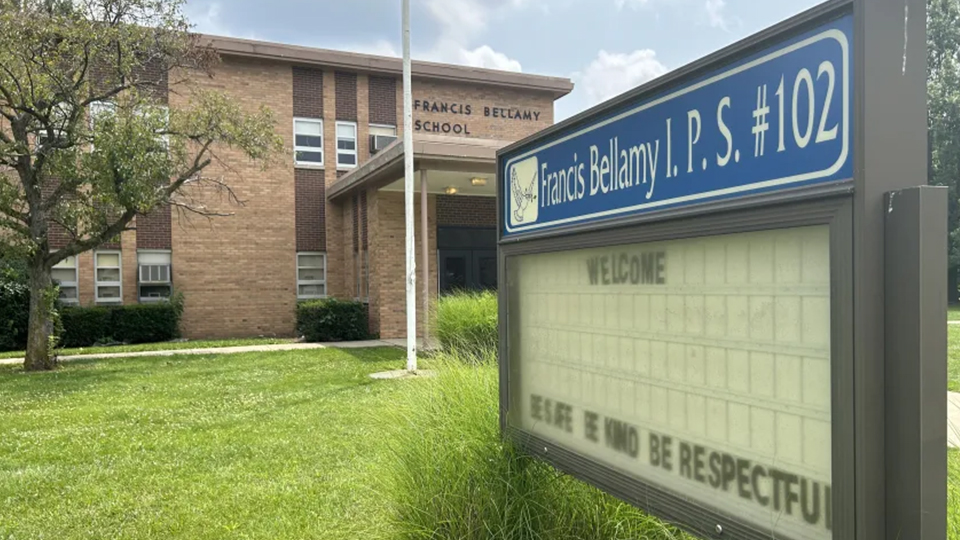IPS seeks relief from law on selling buildings to charters for $1
Subscriber Benefit
As a subscriber you can listen to articles at work, in the car, or while you work out. Subscribe Now
Indianapolis Public Schools is seeking legal affirmation for its position that it is exempt from a state law governing how and when districts must make underused or closed school buildings easily available to charter schools.
In a Monday filing with Marion Superior Court, IPS sought a declaratory judgment that it is exempt from the Indiana law that requires districts to sell or lease those buildings to charter schools or state education institutions for $1. The district is also seeking a preliminary injunction to prevent the Indiana Department of Education from enforcing the law with respect to IPS.
Lawmakers revised the so-called $1 law this year that made it friendlier to charters and education institutions in districts with declining enrollment, but the district stated in July that it’s not covered by the statute because of a 2021 decision it made about sharing certain tax revenue.
The district also issued a statement on Monday underscoring its view that it’s exempt from the law. But charter groups have argued that it is not. And earlier this month, the state education department directed IPS to notify the agency about its school closures, and noted that as a school corporation IPS was subject to the $1 law.
The court filing by IPS is the latest move in a long-running dispute between the district and the charter sector over facilities and resources, as charter enrollment grows and IPS enacts academic and other changes to attract students. The court’s interpretation of the law could also have big implications for the buildings that used to house Raymond Brandes School 65 and Francis Bellamy School 102, both of which closed earlier this year. The buildings have garnered interest from charter schools.
“The IPS Board is committed to complying with Indiana law, believes it is doing so, and believes Indianapolis Public Schools qualifies for the exemption from the $1 Charter Law,” IPS Board President Venita Moore said in a statement. “The IPS Board believes the courts will provide needed clarity regarding the exemption from the $1 Charter Law, and IPS will abide by the ultimate decision from Indiana courts.”
But the Mind Trust, which cultivates charter schools in the city, said in a Monday statement from CEO Brandon Brown that the court filing is “an unfortunate escalation in the district’s ongoing efforts to circumvent state law.”
“By choosing a potentially long and divisive legal battle instead of collaboration, IPS is closing the door on longstanding partners who want to work alongside the district in service to Indianapolis students,” Brown said.
The state education department declined to comment about the Monday court filing from IPS.
Lawmakers tweaked the $1 law this year after school districts successfully maintained exemptions from the law, which targets vacant or unused buildings. Sen. Linda Rogers, a Republican who authored the revised $1 law, said her intention was to create an appropriate balance between the interests of traditional public schools and charters.
But IPS maintains that even the new changes to the statute mean the law does not apply to its sale of School 65 and School 102.
The revised law exempts districts from having to sell or lease closed buildings to charters if they split funding from voter-approved property tax increases meant to pay for operating or safety costs with “applicable charter schools.”
IPS claims it is exempt because it shared funds from its 2018 property tax increase with charters in its Innovation Network of autonomous schools. The district has provided over $4 million annually to Innovation charters, IPS said in its motion for a preliminary injunction.
The school board voted in July to authorize the sales process for those two buildings, with priority given to nonprofit groups or government agencies. The district highlighted one local nonprofit that offers youth programming, Voices, as a potential buyer for the former School 102 building.
“IPS has sought to dispose of Brandes 65 and Bellamy 102 in a strategic manner that benefits the community, IPS students, and IPS,” the district said in its motion for a preliminary injunction. “IPS has not looked to simply offload the buildings to the highest bidder.”
But the district’s interpretation has been criticized by charter supporters. They have argued the district must share referendum funds with all charter schools within the district’s borders.
Rogers previously told Chalkbeat that sharing revenue from the 2018 referendum does not exempt IPS from the revised statute.
A separate state law requires the district to share tax revenue stemming from future ballot questions.
Chalkbeat is a not-for-profit news site covering educational change in public schools.
